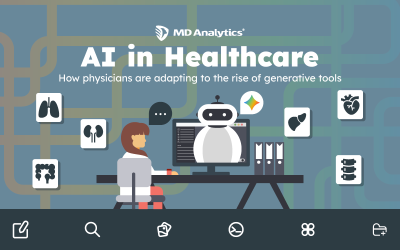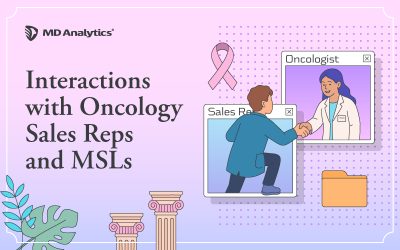Thank you for registering.
You have joined an exclusive group of Canadian healthcare professionals, who wish to participate in market research.
This is what you can expect as a member of our panel:
- You will receive invitations by email to participate in market research studies that are relevant to your profession. (Please add support@mdanalytics.com to your safe sender list.)
- The survey invitation will always clearly communicate to you the format of the study you are being invited to participate in, estimated length of the study, and the incentive amount.
- As our studies often fill quickly, we urge you to participate as soon as you can.
We do our very best to ensure that the studies we send your way are pertinent to your practice. Keeping your profile up to date will help us better identify studies that are most relevant to you.
All studies that we conduct contain a set of screening questions at the beginning of the study. To learn more about why these are necessary, please read our post on the importance of screeners.
At any time, should you have questions or require support with a study, please contact us and one of our team members will help you.
We look forward to your participation.
Latest Survey Data
Physicians are ready for AI. Are pharma companies ready to support them?
AI continues to gain momentum in healthcare, and physicians’ openness to using these tools has increased over the past 2 years.
Our latest findings show that while physicians are ready and eager to adopt AI tools, most haven’t yet received meaningful support from pharma companies. This has remained unchanged over the past 2 years, leaving a clear gap between physicians’ enthusiasm and the assistance available to them.
Discover the full insights in our new infographic showcasing physicians’ perspectives on AI and the untapped opportunities for pharma to help move adoption forward.
AI in Healthcare – Physicians Are Using Tools Like ChatGPT, But Concerns Remain
From quick information searches to assisting during consultations, AI tools are becoming increasingly important in physicians’ practice.
Our latest findings reveal that physicians are widely using these technologies in their practice, and most believe they’ll have a positive impact on healthcare. Yet as AI becomes more accessible, doctors are spending more time correcting patient misconceptions.
See the full picture in our new infographic exploring how physicians are adopting AI, and where caution remains.
How Do Oncologists Really View Sales Reps and MSLs?
Oncologists in the U.S. and Canada value different qualities in sales reps and MSLs. Our latest findings highlight where credibility, expertise, and engagement stand out and which companies earn the strongest recognition.


